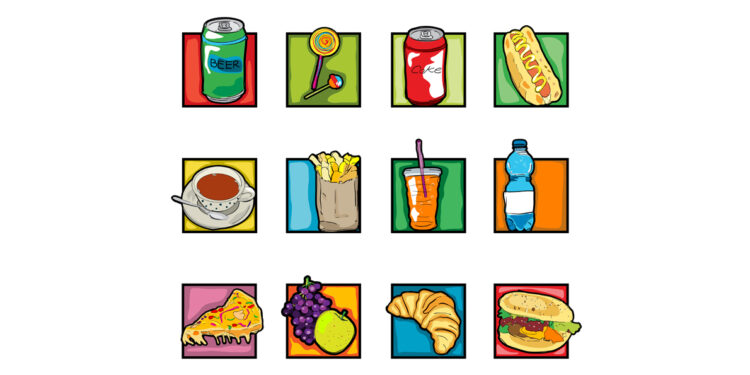The Power of Food Memories: How Nostalgic Flavours Can Transport You Back in Time

Have you ever taken a bite of a particular dish and felt transported back in time? Perhaps to a moment in your childhood, a special occasion, or a significant milestone in your life? This is the power of food memories – the ability of certain flavours and aromas to evoke strong emotions and memories.
Food has the unique ability to connect us to our past in a way that few other things can. It’s a powerful tool that can trigger our senses and transport us back to moments we thought were long forgotten. Whether it’s the taste of your grandmother’s homemade apple pie, the aroma of freshly baked bread, or the smell of your favourite childhood meal, these nostalgic flavours can instantly transport you back in time.
But what is it about food memories that makes them so powerful? It’s not just about the taste, but also the emotions and memories associated with that particular dish. The scent, the texture, the taste – all of these elements combine to create a sensory experience that can be incredibly evocative.
In this article, we’ll explore the power of food memories and how they can transport us back in time. We’ll delve into the emotional impact of these memories, and how they can affect our mood and wellbeing. So, sit back, grab a snack, and get ready to take a journey through the power of food memories.
The Science of Food Memories: How Taste Triggers Memories
Food memories may seem like a magical phenomenon, but there’s actually a scientific explanation behind how they work. Our brains process taste and smell in a unique way that’s linked to our memories and emotions.
When we taste something, our taste buds send signals to our brain, which then processes the information and creates a flavour perception. But it’s not just about the taste – our sense of smell is also heavily involved in this process. The olfactory receptors in our nose can detect thousands of different smells, and when combined with taste, they create a more complex flavour experience.
This palatal experience is then processed in the brain’s limbic system, which is responsible for our emotions and memories. This is why certain foods can trigger strong emotions and memories – they’re processed in the same part of the brain that stores our memories and emotions.
Nostalgia also plays a significant role in our relationship with food memories. Nostalgia is a feeling of longing for a past experience or moment, and it’s often triggered by sensory experiences like taste and smell. When we taste something that reminds us of a positive memory, it can create a sense of comfort and familiarity that’s linked to that memory. This is why comfort foods are often associated with childhood memories or significant moments in our lives.
Our relationship with food memories can also be affected by our current mood and emotions. If we’re feeling down or stressed, the taste of a particular food can trigger negative memories and emotions. On the other hand, if we’re feeling happy and content, the same food can trigger positive memories and emotions.
Using Food Memories to Create New Traditions and Memories
Food memories don’t just have to be a way to look back on the past – they can also be used to create new traditions and memories with your loved ones. Incorporating nostalgic flavours into your cooking can be a great way to bring a sense of comfort and familiarity to new experiences.
One way to incorporate nostalgic flavours is to recreate family recipes or dishes that are associated with positive memories. This could be a favourite holiday meal, a special dessert, or even a simple shrimp and rice your mom made for you as a child (by the way, here you’ll find the perfect recipe for that dish: https://successrice.com/recipes/easy-shrimp-fried-rice/). By recreating these dishes, you’re not only creating a sense of nostalgia but also passing on family traditions and recipes to future generations.
Another way to create new food memories is to experiment with new dishes or ingredients while still incorporating nostalgic flavours. This could be as simple as adding a favourite spice or herb to a new recipe, or even recreating a childhood dish with a new twist. The key is to stay true to the nostalgic flavours that evoke positive memories while also exploring new culinary experiences.
Cooking with loved ones is also a great way to create new food memories. Whether it’s baking cookies with your children or hosting a dinner party with friends, cooking together can create a sense of bonding and connection that’s hard to replicate in other activities. By sharing a meal and creating new memories together, you’re not only enjoying the present moment but also building a shared history that you can look back on in the future.
The Connection between Food Memories and Emotional Well-being
Food memories aren’t just about satisfying our taste buds – they can also have a significant impact on our emotional well-being. Revisiting positive food memories can bring comfort and joy, and even have psychological benefits.
Studies have shown that revisiting positive memories can have a positive impact on our emotional well-being. When we think about happy moments from our past, our brains release dopamine, a neurotransmitter associated with pleasure and reward. This can create a sense of happiness and satisfaction, and even help alleviate stress and anxiety.
Food memories can be particularly effective in providing emotional support and comfort. Certain foods can evoke feelings of safety, security, and even love. For example, the smell of freshly baked cookies may remind us of our grandmother’s kitchen and the sense of warmth and love we felt there. The taste of a favourite childhood snack may evoke memories of happy moments with friends or family.
Using food memories as a way to cope with stress and anxiety is also a common practice. When we’re feeling overwhelmed, revisiting positive memories can help us feel more grounded and centred. Preparing or eating a favourite dish can provide a sense of comfort and familiarity, which can be especially beneficial during times of stress.
In conclusion, food memories are more than just a pleasant reminder of the past – they can have a significant impact on our emotional well-being. By revisiting positive food memories, we can experience feelings of happiness and satisfaction, alleviate stress and anxiety, and find comfort and support during difficult times. So why not take a moment to reflect on your own food memories today and discover the emotional benefits they can provide?










